“What was freely given to me, I freely give.”
– Lauryn Hill (1975 – ) U.S., recording artist
~~~
– Sign up to Zonr for Today’s Full SFZ
How have you recently shared and given freely of yourself, lately?
OR
How can helping someone today make your own life feel more meaningful tomorrow?
~~~
Redemption Song – Lauryn Hill ft. Ziggy Marley (5:19)
Tolerance & the Art of Giving Meditation (7:25)
English Analysis
The Zonr post speaks about Step 7 through a lens of humility, service, and shared healing. The call to give freely arises from awareness of suffering. The post observes: “Legions still suffer.” This claim echoes Viktor Frankl’s belief that humans find meaning when they respond to suffering with purpose (Man’s Search for Meaning, 1946). Frankl argued that people heal when they serve others. Service does not erase pain. Instead, it transforms pain into purpose.
The Big Book asks, “How then shall we present that which has been so freely given us?” That question invites responsibility. It reflects Paulo Freire’s social ethics. Freire (1970) wrote that liberation demands action rooted in love and shared struggle. Giving freely does not mean charity from above. It means mutual aid.
Furthermore, this message aligns with Wellbriety teachings. The Wellbriety Movement teaches: “The healing goes in a circle. What comes around goes around” (Coyhis, 2000). Healing grows when a person offers hope to another. The Basic Text states, “We give freely and gratefully of our time” (1986, p. 51). Giving becomes a sign of gratitude. Russell Brand (2017) also notes that recovery means connection. Isolation feeds addiction. Service restores belonging.
Lauryn Hill’s words, “What was freely given to me, I freely give,” reflect Step 7 humility. We release false pride. Accept a Higher Power’s role. And carry hope to those still suffering, not because we are better, but because we remember our own darkness.
Spanish Translation / Traducción al Español
Citas de SFZ (tres estrofas)
Por Qué Damos Libremente – Paso 7
PORQUE LEGIONES TODAVÍA SUFREN –
“Those of us who live in large cities are overcome by the reflection that close by hundreds are dropping into oblivion every day. Many could recover if they had the opportunity we have enjoyed. How then shall we present that which has been so freely given us?” (The Big Book, p. 19)
DAMOs LIBREMENTE MIENTRAS
LAS CARGAS SE LEVANTAN DE
NUESTRAS ALMAS MISERABLES –
“We give freely and gratefully of our time, service, and what we have found here.” “… working the Twelve Steps guides us from humiliation and despair … .” “The more eagerly we wade in and work, the richer our spiritual awakening will be.” (The Basic Text, p. 51)
“What was freely given to me, I freely give.”
– Lauryn Hill (1975– ), U.S., recording artist
Análisis en Español
La publicación de Zonr habla del Paso 7 desde la humildad, el servicio y la sanación compartida. El llamado a dar libremente surge de la conciencia del sufrimiento. La frase reconoce que “legiones todavía sufren”. Esta idea recuerda a Viktor Frankl, quien mostró que el ser humano encuentra sentido cuando responde al sufrimiento con propósito (Man’s Search for Meaning, 1946). El servicio transforma el dolor en crecimiento.
La pregunta del Big Book invita a la responsabilidad: “¿Cómo compartiremos lo que se nos dio libremente?” Paulo Freire (1970) dijo que la liberación requiere acción basada en el amor y la solidaridad. Dar libremente no significa caridad distante. Significa apoyo mutuo entre iguales.
Además, este mensaje coincide con las enseñanzas del movimiento Wellbriety. Wellbriety enseña: “La sanación viaja en círculo. Lo que das regresa” (Coyhis, 2000). El servicio fortalece la comunidad. El Basic Text enseña: “Damos libre y agradecidamente de nuestro tiempo” (1986, p. 51). El servicio expresa gratitud en acción. Russell Brand (2017) también explica que la recuperación depende de la conexión. El aislamiento sostiene la adicción. El servicio crea unión.
Las palabras de Lauryn Hill, “Lo que se me dio libremente, libremente lo doy,” muestran la humildad del Paso 7. Soltamos el ego y confiamos en nuestro Poder Superior. Ayudamos porque alguna vez alguien nos ayudó a seguir vivos.
¿Cómo puede ayudar a otra persona hoy darle más sentido a tu vida mañana?


Leave a Reply